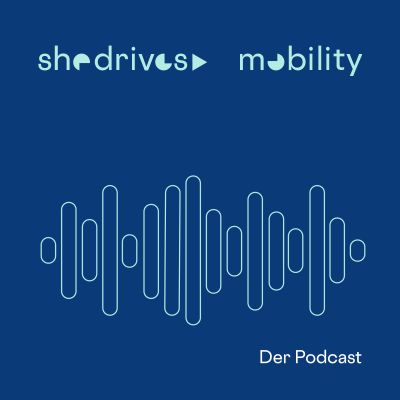Mein Podcast #SheDrivesMobility widmet sich dem Mobilitätswandel, dem Weg auf dem Ziel zu einer echten wahlfreien Mobilität, die den privat besessenen PKW möglichst weit durch echte Alternativen ersetzbar macht. Ich möchte, dass alle, die auf das Auto verzichten möchten, das möglichst schnell auch können. Durch Ausbau öffentlicher, geteilter, komfortabler Angebote. Dazu braucht es - so meine Meinung - unbedingt auch der Diversität. Nicht nur in Jenen, die die neuen Angebote gestalten und die "alten" digitalisieren, sondern auch in der Zusammenarbeit von StartUps und Konzernen, Politik und Gestalter:innen. Zudem sehe ich in einer neuen Art von Arbeit eine große Chance, Wege zu hinterfragen und ggf. sogar nicht zu tun. Ich freue mich, mit meinen Gästen sehr facettenreich über den Mobilitätswandel zu sprechen und immer neue Ideen und Anregungen mitnehmen zu können.
https://katja-diehl.de
episode 62: This episode is a very special to everyone, who wants to change the inhumane, exploitative and often meaningless work system into something that gives people meaning in their lives. Frithjof Bergmann was incredibly active until his death for his greatest
David Helmboldt, Frithjof Bergmann's friend, informed me on 24 May that our next meeting via video call could not take place because Frithjof had just passed away. It's a bit unreal because I've never shaken his hand before, but - again, it's important for me to say - I felt a closeness with both Frithjof and David that rarely but always happens when we meet like-minded people on a mission that is perhaps the hardest: to change the world for the better for all. Not just for those in power and money who are more interested in preserving the current system, but for those who are always abused by the elite as an excuse to do nothing. Those who knew Frithjof know how important the human factor was to him in his working life. How angry it made him that his concept of New Labour was turned into a hollow phrase by too many. All the more I feel the responsibility to carry on his legacy and ask people: "What do you really want to do?" RIP my friend - I cannot put into words how proud it makes me that you chose me to talk to you. Frithjof was very aware of what was happening in Germany, he asked me if we were afraid of poverty and job loss - as we have been for some time in the US - because we need systemic change. We haven't managed to make that change, but Frithjof thought it was still possible. He first established his idea of New Work in the 1980s because of the beginning crisis of the car manufacturers in the USA. He therefore founded the Center for New Work in Flint in 1981 and developed a series of proposals about work as a vocation and as a means of self-fulfilment, alternating with regular employment and incorporating self-sufficiency made possible by technology itself. He has never ceased to be a thought leader for a human-centred world - starting with "New Work" as a genuine rethinking of the freedom of each of us. By shifting the focus from the outside to the inside of the human being, Frithjof shows how freedom can become a reality in self-development, in parenting, in education and in shaping a society that stimulates the self rather than destroying it or making it still and dead. He reminds us that the "job system" for organising work is only about 200 years old - since the Industrial Revolution. It has always been problematic and is now on the verge of collapse, and what comes after, for better or worse, depends on the decisions made and executed in the current time. The present time is very similar to the time of his first approach to change labour. Anticipating the looming catastrophe, Frithjof Bergmann began to design alternatives to the system of work - and he is still at it. He began by promoting dialogue about mitigating the effects of layoffs in times of recession among the workforce in the car industry and in the community, which is very familiar to what he is seeing now in Germany. New Work, New Culture recounts the evolution of his ideas and describes a path that humanity could follow so that everyone can live a better life. He reminds us, that the "job system" for organizing work is only around 200 years old - since the industrial revolution. Always problematic, it now approaches collapse, and what follows, either for good or ill, depends on decisions made and executed in current times. The times right now are very much alike to the times of his first approach of changing work. Prescient of the looming disaster, Frithjof Bergmann began to devise alternatives to the job system - and he is still on it. He started with the fostering of dialogue, about ameliorating the impacts of layoffs in times of recession, among the workforce in the auto industry and community, which is very familiar to what he sees now in Germany. New Work, New Culture recounts the development of his ideas, and describes one course which humanity might follow, that all might live better lives. He is inviting leaders from automotive industry, to rethink work and come out of the crisis better and stronger - and rehumanized.
